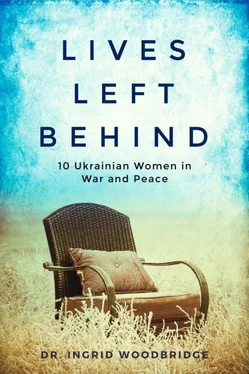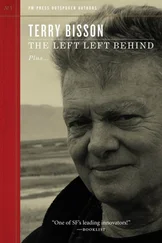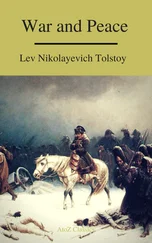Ultimately, Elisey and his Baptist men organized three refugee camps and provided for the humanitarian needs of the temporary citizens. The pastor and his men travelled back and forth to and from Pervomaisk whenever a cease fire would allow them access. Oksana lived during this initial time with her son David in the Vinnytsia refugee camp. Viola was still with the youth group at Word of Life camp outside of Kyiv. For five weeks, the Vinnytsia camp was home, shelter, communication center, and hope to Oksana.
Then Elisey moved his family to Severodonetsk. This city was in the Ukrainian territory of the war zone. Elisey felt it was important for the family to be together again, even though it meant being closer to the danger. Oksana did not agree with this move. She cried a lot and became hysterical at times, remembering that during this time she was very scared and anxious. They lived so close to the conflict zone, they could hear the artillery, feel the bombs falling, and observe the raids by airplanes. They lived in dread and heard the rumble of tanks on the streets.
Oksana recalled that they lived temporarily on the seventh floor of a building. As she was looking outside, she could see tanks and war vehicles amass. These were Ukrainian military convoys heading to the war zone. She understood that these convoys were heading to her city where people she knew in her town would suffer and die. War had come to their hometown. Oksana also feared that the war would creep ever closer, and what this evening at bedtime was Ukraine, might be Russia in the morning when she woke up.
But their move to Severodonetsk meant that they could minister to people in greater need than they. From Severodonetsk the family provided logistical help and support to other refugees. They would travel back and forth to the camps, which the Pervomaisk Baptist church had started.
The situation in the villages was worsening. In the first few months of the conflict, it was still possible to bring fresh produce into the war zone from neighboring towns. It was like the Berlin Air Bridge during the Cold War, but this humanitarian aid lift was happening between towns in Eastern Ukraine. Now the people often had no food, no fresh water, no clothes, and none of the stores were open anymore for business.
This lack of clothes also affected Oksana and her family. They left Pervomaisk in July of 2014 with summer clothes for a week, anticipating and hoping to return to their homes soon. Now they had been on the road and living in temporary shelters and camps for more than four months already. Oksana had one suitcase for all of the family’s belongings. It was a really stressful and challenging time. But she joked, saying, “At least we could grab this one suitcase quickly and leave if we had to escape again.”
Living like this for months on end was a really difficult time in Oksana’s life. The practical aspects of residing in a refugee camp and, afterwards, moving into temporary housing close to the war zone, can only be imagined. The memories were hard for Oksana to share.
Viola, Oksana’s daughter, had by now returned from Kyiv to join the family again. They lived then in Severodonetsk and Viola was enrolled in school for the fall of 2014. The war had begun in the summer of 2014, but by fall all the children had to go to school somewhere. Viola did not like school in this city; it was a huge stressor for her. Viola simply could not get used to the new situation. She was fifteen years old and was experiencing war and all its horrors in her most formative years. The family lived through this season of life with stress, anxiety, and fear. Each day was clouded with a sense of disbelief about the actual events, which were affecting their lives so dramatically.
Before the conflict, the Baptist church in Pervomaisk had often hosted American teams for summer camps. Because of this, Elisey was considered an American spy by the occupiers of the town! Elisey had good relationships with the US churches sending these teams. Two frequent team members, Dan and Susan, had invited the Pronin family to visit them in the States even prior to the breakout of war, but Elisey had always said that he could not leave the local church. Now Dan and Susan urged the family to come to the US to rest and be refreshed after their stressful war experiences. At first, Elisey insisted he could not ignore the needs of his people in such a crisis, so the Pronins had stayed nearby when war broke out. Elsey did everything in his power to help local believers and be a testimony to those who had no understanding of a Christian perspective on life.
Now the needs of his own family became apparent to Elisey, as stress had taken a major toll on all of them. The Pronins applied for visas and received them from the US embassy. They understood this as a sign from God that they were all, including Elisey, to go to the US for a while together. At this point, Elisey and Oksana reasoned, life in the refugee camps was firmly established and functioning as well as could be expected given the circumstances. People had their own space (huts on the premises of the camp) and there was a church team in place, responsible for helping and providing for these three camps. Financial aid was also coming in regularly to help the people in the camps. Elisey believed he could step away from these camp responsibilities, and so the family decided to leave for the US in November 2014.
Oksana recalled that when they got to America, they kissed the ground, they were so happy and relieved to be in safety. After having experienced war for so many months, it was a new freedom and lightness they suddenly felt. The danger was gone, the fear fell off like a coat, they could breathe easy and hope again. She said with their arrival in the US, their rehabilitation began. They lived in Louisburg, Kansas, for nine months. Pastor Dan and his wife Susan wanted to do anything and everything for them to help them in their recuperation. They rented an apartment for them, bought them things for living, brought fruits and other groceries. They often ate together, talked, and relaxed. It was truly rehabilitating. “We were getting better and healthier,” Oksana recalled.
Elisey had many opportunities to speak at churches, schools, colleges, and social clubs like Rotary, sharing with people about the war in Eastern Ukraine. The family met many new friends, people who showed genuine interest in the events around the Donbass region. But Oksana cautioned by saying, “Even though this interest was great, it was also difficult to accommodate, because in the retelling of the events you relive everything that has happened, and so, the trauma continues.”
Oksana and Elisey were able to Skype with friends and family members in Eastern Ukraine occasionally, given the difficult situation and the technological challenges. They regularly received updates on what was going on and what needed to get done. They were able to raise support for the people in the war zone.
While staying in contact with the people of the East, it became apparent to Elisey that more needed to be done for them. He constantly thought about ideas to help the residents of the war zone who were caught in a very hard place. American churches could do more to help these suffering Ukrainians. The Pronins were invited to stay long term in the US. Oksana really wanted to continue living in America. It was a place of safety and security. The church in Kansas had helped them so much to establish a new life. The children, David and Viola, had attended local schools, learning English; they were adjusting to the American way of life. Elisey had begun serving in a local church as assistant pastor. But it had never been the family’s plan to stay in the US; they had always just considered this time an opportunity to be refreshed and revived after their traumatic experiences of war.
Читать дальше












